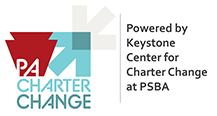Your View: Pa. misses another chance for much-needed charter school reform
The Morning Call by Eugene DePasquale and Ralph Gleason, July 30, 2022
Every state budget includes negotiated agreements on a variety of policy issues. Yet, despite bipartisan calls for comprehensive charter school reform, once again the Pennsylvania General Assembly has put this year’s budget to bed without any significant reforms to the charter school law, widely recognized as one of the worst in the country.
As longtime public servants representing both major political parties and as concerned citizens who care about public education in the commonwealth, we are writing to express our great disappointment and frustration with the continued inaction by our state legislature despite broad-based, statewide, bipartisan support for charter school reform. The fact that more than 85% of locally elected school boards (434 of 500), in a state as diverse as ours, have passed formal resolutions calling for a substantive charter school law overhaul should send a clear message to policymakers — it is time for reform.
While we both recognize that choice has a place in our education system, we believe it is incumbent upon our elected leaders to ensure that the choices made available are high-quality, transparent and accountable. Educational choices must also be designed to ensure the responsible use of taxpayer dollars. All these factors need to be addressed in the charter school law.
It is well past time to hold failing charter schools accountable. The data is clear: every cybercharter school in the state has been identified for support and improvement. Proficiency on state assessments and graduation rates at all charter schools have, on average, been substantially lower than those of traditional local public schools.
In the Legislature’s most recent proposal to bring school vouchers to Pennsylvania (HB 2169), half of all charter schools were identified as “low-achieving schools.” It is clear that taxpayers are being taken advantage of while charter students, particularly cybercharter students, are often done a disservice. This must end.
Reforms are also long overdue and necessary because taxpayers have been significantly overpaying for regular education tuition at cybercharter schools and for special education tuition at all charter schools due to flawed funding formulas. Estimates of these overpayments approach $400 million and grow much faster than enrollment in charter schools.
The root of the problem is the law’s calculation of tuition rates that school districts are required to pay for each student who attends a charter school. Tuition rates are calculated based on the district’s expenditures and not what the charter school needs to provide an educational program, the calculation includes expenses that charter schools do not have and the calculation makes certain costly assumptions. For cybercharter schools these flaws result in vastly different tuition rates (as much as a $13,000 variance) being paid to the school despite all students in the school being provided the same online educational programs. Further, under the law, cybercharters receive the same tuition as brick-and-mortar charter schools despite not having the same level of expenses. For example, most cybercharters do not maintain a physical school building and do not incur the costs of maintenance, utilities and other associated overhead, nor do they incur costs to the extent brick and mortar schools do for extracurricular activities, food services and health services.
For special education students attending any charter school, the funding formula incorrectly assumes all students will require the same level of services and support, and thus have the same costs. This flaw is critical because school districts are responsible for educating more than 95% of the students with disabilities who require the most extensive services and support. Because tuition rates are based on district expenses, this drastically inflates the tuition rate paid by school districts for special education students and allows charter schools to use precious resources specifically designated for special education services for other purposes.
With Pennsylvania taxpayers on the hook to pay more than $2.6 billion in charter school tuition this year there is an irrefutable connection between charter tuition overpayments and increased local property taxes. The 2022 State of Education Report from the Pennsylvania School Boards Association found 78% of districts surveyed identified charter school tuition payments as one of their top budget pressures.
There is still time for the legislature to take action this fall before the current legislative session ends. For the benefit of students and Pennsylvania taxpayers we are calling upon our public officials in Harrisburg to finally get charter reform legislation across the finish line.
Robert Gleason is president of the Westmont Hilltop school board in Cambria County. He served in Gov. Thornburgh’s cabinet as secretary of the commonwealth, on the Pennsylvania Transportation Commission under Gov. Ridge and the Pennsylvania Turnpike Commission under Gov. Casey. He was elected chair of the Pennsylvania Republican Party in 2006 and served in that capacity until 2017. Eugene DePasquale is the former two-term auditor general of Pennsylvania after serving as a three-term member of the state General Assembly (D-York County).
